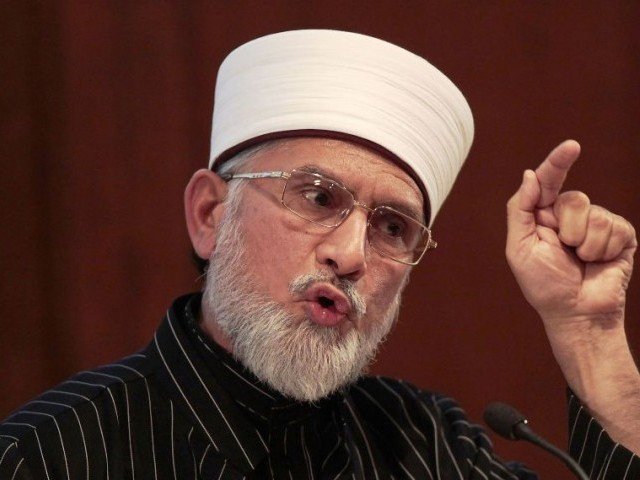LAHORE, Pakistan, (Reuters) – A prominent cleric returned to Pakistan today to lead what he calls a peaceful revolution against Prime Minister Nawaz Sharif as his supporters fought pitched battles with police firing tear gas in the capital Islamabad.
Tahirul Qadri, a Pakistani preacher turned political activist who lives in Canada, is a divisive figure in Pakistan, where he made headlines last year by leading mass rallies against the previous government.
As a plane carrying Qadri approached Benazir Bhutto International Airport near Islamabad, violence broke out on the ground as police fired tear gas at 2,000 of his supporters in chaotic scenes rarely seen in the orderly capital.
The authorities, fearing an escalation of unrest, diverted the commercial flight to the eastern city of Lahore.
“We want no corruption, we want no terrorism in our country,” Qadri told Reuters aboard the plane. “We want total transparency of institutions.”

Qadri’s sudden ascent to prominence has prompted speculation that the army, which ruled Pakistan for decades, may be using him as a proxy in efforts to sideline the civilian government.
His comeback comes at an uneasy time for Prime Minister Nawaz Sharif, whose civilian government has failed to engage Taliban militants in peace talks, prompting the army to launch a major offensive against the militants.
Even after the aircraft landed in Lahore, Qadri and his supporters refused to leave the plane for hours, demanding it fly back to Islamabad or for the army to send a representative to protect him.
He eventually disembarked and was escorted to his residence in Lahore, his main base in the country. Outside Lahore airport, about 1,000 supporters held a peaceful rally shouting “Long live Qadri”.
Qadri’s spokesman, Shahid Mursaleen, said he wanted to stage an Arab spring-style revolt and install a government that would enforce reform, tackle terrorism and improve accountability.
“He wants to bring a peaceful democratic revolution,” Mursaleen told Reuters. “He wants to topple the whole system.”
ARMY’S BACKING
It is hard to estimate Qadri’s popularity in a country with few reliable opinion polls, but his sympathy for the army could catapult him to the centre of a brewing protest movement.
Discontent with the government is already high due to power shortages that have crippled the economy as well as a persistent Taliban insurgency which stages attacks around the country.
Reflecting the government’s anxiety, police had placed cargo containers along major roads to restrict access to Islamabad airport and blocked mobile phone services to disrupt communication between the demonstrators.
At least eight people, including a policeman, were killed in Lahore last week when protesters clashed with police in a standoff over Qadri.
“Long live the army!” and “Revolution will come!” chanted his supporters, who had gathered outside the airport in the military garrison city of Rawalpindi near Islamabad.
“We just want to give a peaceful welcome to our leader, but they (government) pounded us with heavy tear gas,” said one protester, Tajamul Hussain, in his early 20s.
“Their days are numbered, God willing, Doctor Qadri will bring revolution to Pakistan.
